 March 2024 in “Stem cell research & therapy”
March 2024 in “Stem cell research & therapy” Human dental pulp stem cell-conditioned medium, especially from hypoxic conditions, may help treat chemotherapy-induced hair loss and does not increase cancer risk.
December 2023 in “Animals” The research found genes and miRNAs that may control hair growth in Forest Musk Deer.
April 2023 in “Chinese Medical Journal” Human hair follicle stem cells help repair tendon injuries.
 67 citations,
September 2003 in “Journal of cutaneous pathology”
67 citations,
September 2003 in “Journal of cutaneous pathology” Skin problems are very common in people with end-stage kidney disease.
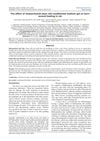 3 citations,
April 2022 in “Veterinary world/Veterinary World”
3 citations,
April 2022 in “Veterinary world/Veterinary World” The mesenchymal stem cell-conditioned medium gel improved burn healing and hair growth in rats better than other treatments.
 2 citations,
November 2017 in “Journal of Cosmetic Dermatology”
2 citations,
November 2017 in “Journal of Cosmetic Dermatology” Injecting platelet-rich plasma under the skin significantly improves hair growth and quality without harmful effects.
 October 2023 in “Peer review”
October 2023 in “Peer review” PRP is a safe and effective treatment for hair loss.
 235 citations,
January 2011 in “Journal of Clinical Investigation”
235 citations,
January 2011 in “Journal of Clinical Investigation” Men with baldness due to androgenetic alopecia still have hair stem cells, but lack specific cells needed for hair growth.
 11 citations,
September 2019 in “Dermatologic Surgery”
11 citations,
September 2019 in “Dermatologic Surgery” A substance called Vascular Endothelial Growth Factor can protect certain hair follicle stem cells from damage caused by androgens, suggesting a new possible treatment for hair loss.
4 citations,
January 2016 in “Methods in molecular biology” Hair follicle stem cells can become nerve cells using specific treatments.
 April 2011 in “Faculty Opinions – Post-Publication Peer Review of the Biomedical Literature”
April 2011 in “Faculty Opinions – Post-Publication Peer Review of the Biomedical Literature” Bald men with male pattern baldness still have hair stem cells, but lack certain cells needed for hair growth.
 January 2011 in “Faculty Opinions – Post-Publication Peer Review of the Biomedical Literature”
January 2011 in “Faculty Opinions – Post-Publication Peer Review of the Biomedical Literature” Bald men with male pattern baldness still have hair stem cells, but lack certain cells needed for hair growth.
 January 2011 in “Faculty Opinions – Post-Publication Peer Review of the Biomedical Literature”
January 2011 in “Faculty Opinions – Post-Publication Peer Review of the Biomedical Literature” Bald men with male pattern baldness still have hair stem cells, but lack certain cells needed to grow hair.
6 citations,
March 2018 in “The American journal of dermatopathology/American journal of dermatopathology” BerEP4 and CD34 staining can help tell apart tricholemmoma from basal cell carcinoma.
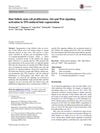 30 citations,
February 2017 in “Histochemistry and Cell Biology”
30 citations,
February 2017 in “Histochemistry and Cell Biology” TPA promotes hair growth by increasing stem cell activity and activating specific cell signals.
June 2023 in “Dermatopathology” A woman had a unique skin growth with hair follicle, oil glands, fat cells, spindle cells, and nerve fibers.
25 citations,
March 2008 in “The journal of investigative dermatology/Journal of investigative dermatology” Vitamin D Receptor is needed for hair growth in mice but not for skin stem cell maintenance.
 March 2020 in “Central European Journal of Biology”
March 2020 in “Central European Journal of Biology” The study found that stem cells and neutrophils are important for regenerating hair follicle structures in mice.
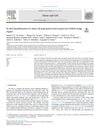 5 citations,
December 2017 in “Tissue and cell/Tissue & cell”
5 citations,
December 2017 in “Tissue and cell/Tissue & cell” Researchers found stem cells in dog hair follicles using specific markers.
 4 citations,
August 2005 in “Archives of Dermatological Research”
4 citations,
August 2005 in “Archives of Dermatological Research” Higher p63 and CD34 levels found in specific scalp areas may affect hair loss progression.
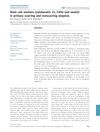 54 citations,
January 2009 in “British Journal of Dermatology”
54 citations,
January 2009 in “British Journal of Dermatology” Scarring alopecia affects different hair follicle stem cells than nonscarring alopecia, and the infundibular region could be a new treatment target.
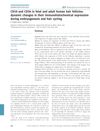 25 citations,
July 2008 in “British Journal of Dermatology”
25 citations,
July 2008 in “British Journal of Dermatology” CD10 and CD34 levels change during hair development and different hair growth stages, which could be important for hair regeneration treatments.
 21 citations,
July 2006 in “Veterinary dermatology”
21 citations,
July 2006 in “Veterinary dermatology” CD34 marks potential stem cells in dog hair follicles.
 January 2023 in “Turk Dermatoloji Dergisi”
January 2023 in “Turk Dermatoloji Dergisi” Injecting a cell suspension from hair follicles increased hair density in a balding patient.
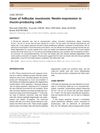 1 citations,
July 2009 in “Journal of dermatology”
1 citations,
July 2009 in “Journal of dermatology” A 29-year-old man had a jaw plaque diagnosed as follicular mucinosis, linked to nestin-positive hair follicle stem cells.
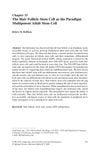 1 citations,
January 2008 in “Springer eBooks”
1 citations,
January 2008 in “Springer eBooks” Hair follicle stem cells can turn into many cell types and may help repair nerve damage and have other medical uses.
 43 citations,
December 2008 in “Molecular biology of the cell”
43 citations,
December 2008 in “Molecular biology of the cell” Disrupting Smad4 in mouse skin causes early hair follicle stem cell activity that leads to their eventual depletion.
 8 citations,
August 2016 in “Journal of pathology and translational medicine”
8 citations,
August 2016 in “Journal of pathology and translational medicine” CD99 is highly present in certain skin cells and could help treat skin conditions.
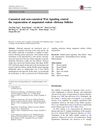 5 citations,
January 2016 in “Journal of Molecular Histology”
5 citations,
January 2016 in “Journal of Molecular Histology” Both main and alternative Wnt signaling are important for regrowing rodent whisker follicles.
4 citations,
January 2018 in “Microscopy research” Scientists found markers called CD34 and CD200 that help identify stem cells in mouse and human hair follicles.






















